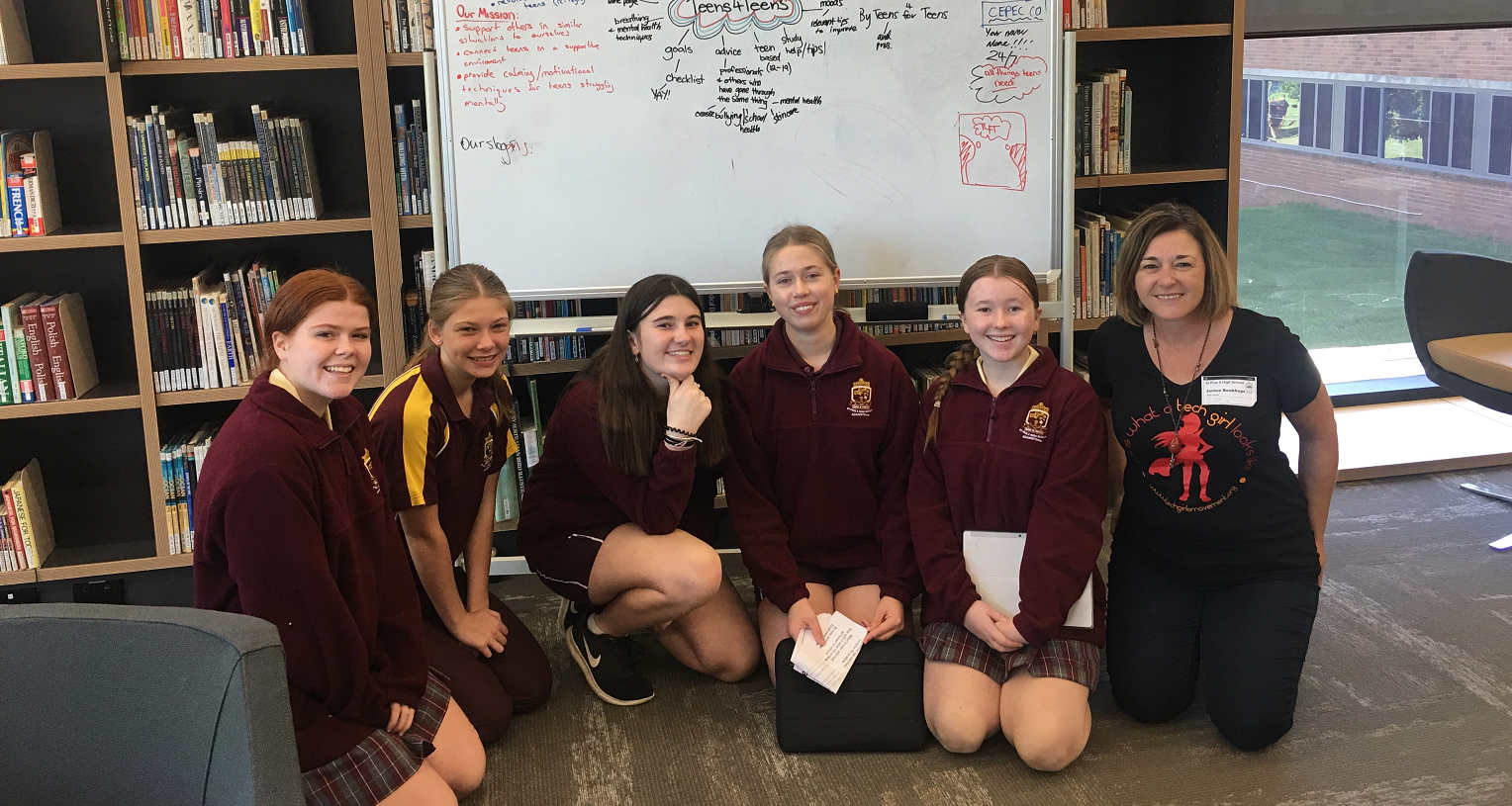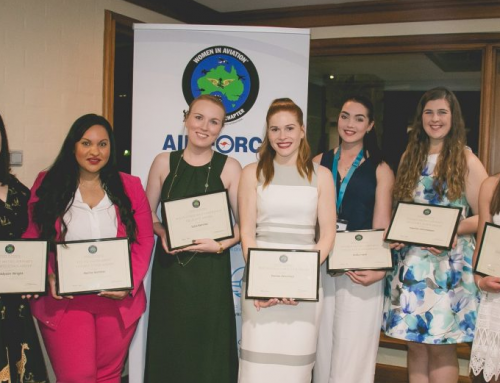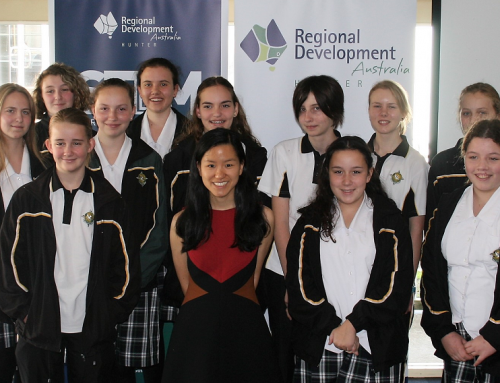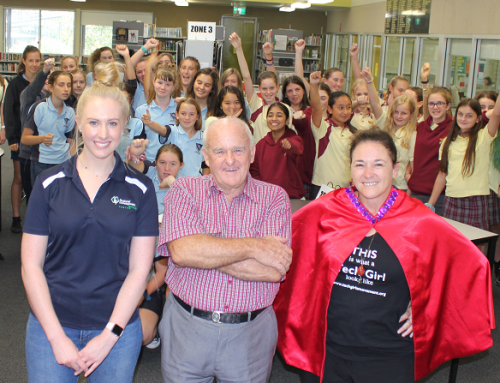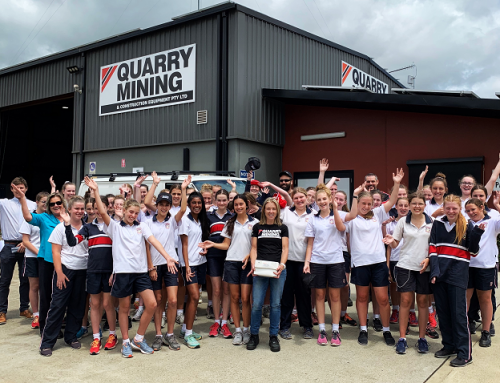By Kate O’Mara
Business, industry, government and peak body associations agree: the need to diversify the workforce is crucial. According to Ai Group’s National Manager – Workplace Relations Policy, Nicola Street, given that employment in STEM occupations is projected to grow at almost twice the pace of other occupations, increased female participation in occupations and industries that require STEM skills and qualifications is critical for industry to future-proof its STEM workforce.
This assertion underpins RDA Hunter’s STEM workforce development program, ME. Underwritten by and delivered in close partnership with the Australian Department of Defence since 2009, ME’s aim is to upskill, grow and diversify the Hunter’s workforce – especially in support of the defence industry.
The ME Program is part of RDA Hunter’s STEM Workforce Initiative, which delivers life-stage specific education programs to create a pipeline of opportunities and activities for students from eight years of age to 18, in preparation for STEM careers.
The ME Program facilitates formal partnerships between Hunter industry and high schools to make curriculum more workplace-relevant and build awareness of defence industry career pathways. It has a strong focus on developing science, technology, engineering and maths (STEM) skills in students from years nine to 12 in readiness for the jobs that industry will require in the future.
The ME Program also works to diversify the cohort studying STEM and, in particular, aims to promote the defence sector opportunities available to girls. Participation in programs such as Tech Girls are SuperHeroes, sheflies, STEM-Ex and Aerospace Industry Careers Days is a critical component of ME delivering an increase in the number of girls studying STEM and considering careers in defence industry.
“We value the partnerships with industry, schools, and the Commonwealth Government that have strengthened over the many years we’ve been honing our ME Program,” said RDA Hunter’s Chairman, John Turner. “And, we have leveraged these relationships to ensure the relevance and outcomes focus of our STEM activities.”
“ME is a successful, truly industry-led model that we are extremely proud of. It is emulated widely because it works and we are thrilled by the latest figures that show more girls are increasingly engaging in our STEM programs and becoming aware of the many and various career opportunities that STEM in defence opens up for them.” continued Mr Turner.
The ME Program currently partners with 47 Hunter high schools. Of these, eight are considered Group One, or high engaging schools, meaning they regularly participate in ME’s STEM development activities. Of the Group Ones, three are Department of Education (DoE) schools, three are Catholic, one DoE selective and one Independent.
This regular and long-term participation by a core group of schools has enabled collection of a reliable data set across shared ME activities. Analysis of data reveal significant achievements in the participation of female students in the Group One cohort of 1,389 students:
- Enrolments in year 11 Engineering Studies have increased from 1.4% in 2016 to 2.6% in 2018 – both well above the NSW average of 0.3%, which has been stable since 2016;
- Enrolments in Year 11 two-unit Maths have increased from 15% in 2016 to 21% in 2018; and
- Maths Ext 1 enrolments are comparable with the NSW average at 6%.
“We have seen a marked increase in the participation of girls in our programs. Of note is the number of girls that have enrolled in Engineering Studies in 2018.” said RDA Hunter’s STEM Workforce Manager, Rick Evans.
“These results are a reflection of the programs we’re currently implementing. Programs like Tech Girls are SuperHeroes and sheflies that have been specifically designed by professional ‘STEM women’ to inspire girls to elect STEM subjects, as well as to help them understand the industry applications of studying these subjects and the career opportunities which open up for them.” continued Mr Evans.
Futurist and founder of the Tech Girls are SuperHeroes program, Dr Jenine Beekhuyzen works to build the skills and confidence of girls in science, technology, engineering and maths (STEM). Dr Beekhuyzen’s global network, which extends to Europe, the United States and Asia and includes research collaborations with Deakin University, QUT, the University of Muenster, Germany and the University of Liechtenstein, reinforces the worldwide need for gender diversity.
“There’s no doubt that I.T is a male dominated field, globally. After years of being one of only a handful of women in the sector, I asked myself why?,” said Dr Beekhuyzen.
“Like any other field, I thought, it’s an area that anybody can build skills in and the job opportunities are huge and growing all the time. So why don’t girls consider it as a viable career? The evidence told me that girls opt out of STEM at 6 years old – in part due to a lack of visible female role models but also due to a lack of understanding of what STEM professionals actually do. And that’s how the Tech Girls Movement began.”
Dr Beekhuyzen is an advocate for diversity in technology and has a strong background in academic publishing on gender and IT. She is the Asia-Pacific representative for the Association for Information Systems-National Center for Women in Technology (US) and the United Nations PRME Coordinator of the global repository on gender and technology.
“I’m passionate about promoting positive female STEM role models – if you can’t see it you can’t be it! – as well as giving girls access to technology and programs to help build their skills and confidence. So, I work through the Tech Girls Movement to present women working in STEM as mentors and ‘superheroes’ and feature them in our Tech Girls Are Superheroes books in their STEM alter egos – I’m Jewella!”
“We also inspire young women to solve important community problems with technology skills and business acumen through our annual online Search for the Next Tech Girl Superhero competition. And we run hands-on workshops for entrepreneurship, robotics and electronics.” continued Dr Beekhuyzen.
Solving community problems with the assistance of technology is the area in which RDA Hunter’s ME Program has recently engaged with the Tech Girls Movement. Implementing its Entrepreneurship in a Day Program with four Hunter high schools in May 2018, RDA Hunter was able to connect more than 80 students directly with Dr Beekhuyzen and her innovative program.
Approximately 20 students from each participating school – Tomaree High School, St Philips Port Stephens, St Pius X High School and Lambton High – were immersed in the two hour program that saw them participate in coding activities and the design and development of an app to address a world problem. Facilitated, rather than taught by Dr Beekhuyzen, the program imparted important practical skills while also building girls’ enterprise skills by allowing them the freedom to self-manage their time and their project outcomes.
Tomaree High School year 10 students Bethany Phillips and Doeun Kim participated in the session, “The Tech Girls are Superheroes program was a great experience. The independence to work in small groups without step-by-step instruction was awesome. The all-girls format was something different for us but we loved it – we felt comfortable to share our ideas, brainstorm and speak freely,”
“In our science and tech projects, it’s normally the boys who take the lead – we use their ideas and they project-manage but this activity was really different. It was a challenge because we weren’t used to backing our own ideas but we felt more invested and really wanted it to succeed because it was our work.”
“We thought our idea was worthwhile and we really enjoyed working together, so we’ve decided to continue with the Tech Girls are Superheroes competition. We know its school-work and we’re learning but it’s fun and gives us the opportunity to meet interesting people. Seeing women like Dr Beekhuyzen who are really smart and who have taken their interest in science subjects and turned it into a job is inspiring. It’s opened our eyes, a bit, to what’s possible.” Bethany and Doeun continued.
Dr Beekhuyzen said, “The Hunter girls were amazing! They embraced the concept and worked diligently, both in groups and individually, to design apps that would help people – that solve real problems.”
“Sometimes identifying the problem is the hardest part of the process, but, all the girls came up with interesting problems, identified potential solutions and then designed apps that could help the general public better tackle these issues – issues as diverse as catering for celiacs, mental illness and anxiety, study aids, littering, and what to wear each day.”
“I’m really pleased that Bethany and Doeun embraced the opportunity RDA Hunter provided and have decided to continue with Tech Girls and enter our international competition. It takes courage to put yourself and your ideas forward, but our work, as well as providing technical knowledge, gives girls the moral support and the positive environment that leads to the confidence to do just that. I’m really proud and can’t wait to see how Bethany and Deoun progress their concept.” continued Dr Beekhuyzen.
Kate O’Mara is a freelance project director and strategic communications specialist with a background in regional development.

